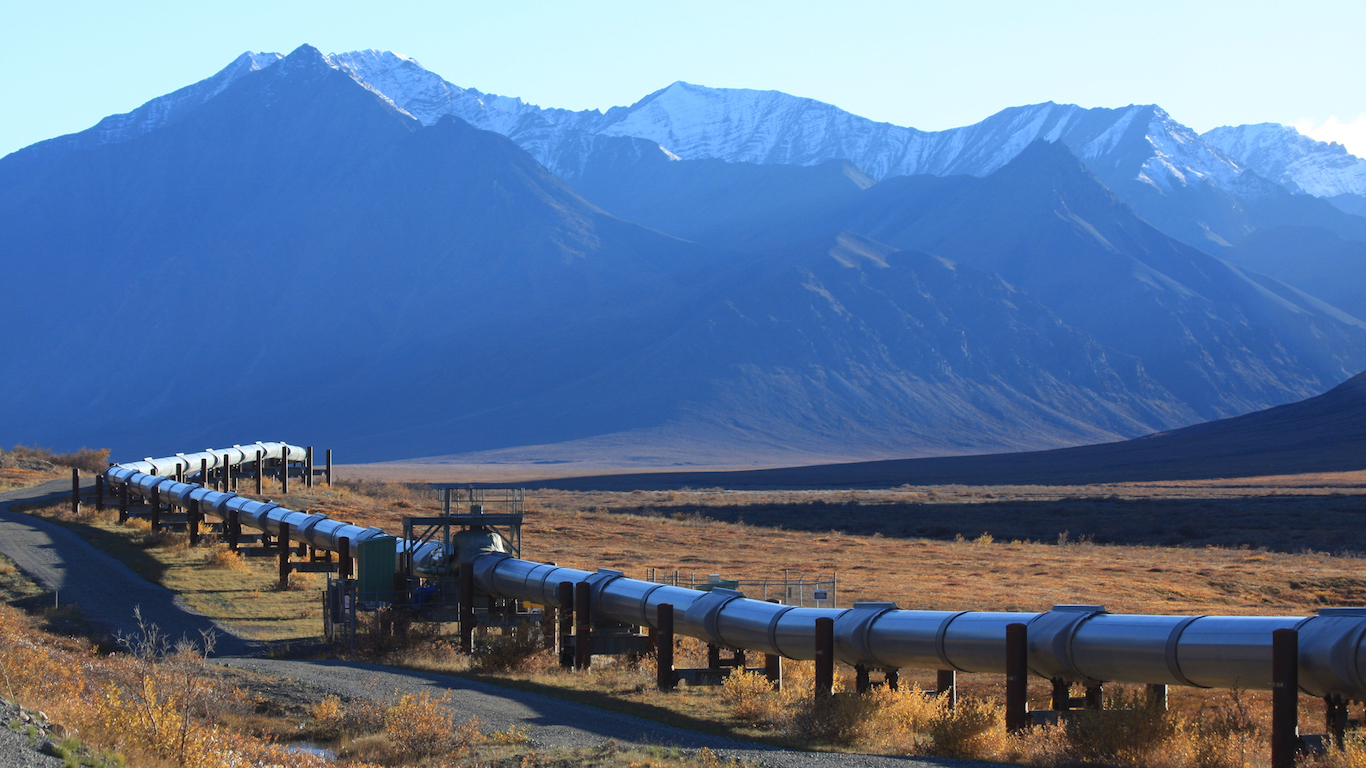Energy
Kinder Morgan Treading Water as Revenues Dip, Investors Losing Patience

Published:
Last Updated:

Kinder Morgan Inc. (NYSE: KMI) reported fourth-quarter and full-year 2016 results after markets closed Wednesday. The midstream giant posted earnings per Class P share (EPS) of $0.08 per share on revenues of $3.39 billion. In the same period a year ago KMI posted an earnings per share loss of $0.32 on revenues of $3.64 billion. Consensus estimates called for EPS of $0.19 and revenues of $3.54 billion.
For the full year Kinder Morgan posted earnings per share of $0.25 on revenues of $13.06 billion compared with 2015 EPS of $0.10 and revenues of $14.4 billion. Analysts were expecting EPS of $0.62 and revenues of $13.2 billion.
The company said it would pay a $0.125 dividend for the fourth quarter and expects its full-year 2017 dividend to total $0.50. Kinder Morgan intends to use its cash in excess of dividends “to fund growth investments and strengthen its balance sheet.”
Distributable cash flow (DCF) for the fourth quarter totaled $0.51per share, down from $0.55 in the year-ago quarter and up from $0.48 sequentially. For the full year, DCF per share came to $2.02 compared with $2.14 in 2015. The quarterly drop was attributed to the third-quarter sale of half the company’s interest in the Southern Natural Gas pipeline and to lower contributions from the CO2 segment (where Kinder Morgan accounts for oil and gas production) primarily due to lower commodity prices.
DCF is a non-GAAP measure that is roughly comparable to net income per share and is KMI’s preferred way of comparing basic cash flows to the cash dividends it expects to pay shareholders. Another way of looking at DCF is as coverage in excess of dividends. DCF for 2016 totaled $4.51 billion, down from $4.7 billion in 2015. For 2017 the company expects DCF to total $4.46 billion
Executive chairman Richard Kinder had this to say:
For the year, we substantially reduced our debt, further positioning Kinder Morgan for long-term value creation. We finished ahead of our plan for 2016 year-end leverage, and we are pleased with the progress toward reaching our targeted leverage level of around 5.0 times net debt-to-Adjusted EBITDA. This will position us to return substantial value to shareholders through some combination of dividend increases, share repurchases, additional attractive growth projects or further debt reduction. We are also seeing green shoots in our sector, based on the expected balancing of global crude oil supply and demand combined with expectations for a more positive federal legislative and regulatory environment. Overall, we are very confident about Kinder Morgan’s future.
Kinder Morgan’s current project backlog is valued at $12 billion, down from $13 billion at the end of the third quarter.
The company recently received permission from the Canada’s federal government and expects to begin work on an expansion of the Trans Mountain pipeline system that is planned to nearly triple daily transportation of crude from the oil sands region of western Alberta to nearly 900,000 barrels a day. The company also plans to begin construction of its Elba Island natural gas liquefaction project during the year.
Shares closed down about 0.5% at $22.44 and traded down another 3.3% in the after-hours session at $21.70 in a 52-week range of $11.20 to $23.36. The consensus price target on the stock was $25.38 before the earnings announcement.
The last few years made people forget how much banks and CD’s can pay. Meanwhile, interest rates have spiked and many can afford to pay you much more, but most are keeping yields low and hoping you won’t notice.
But there is good news. To win qualified customers, some accounts are paying almost 10x the national average! That’s an incredible way to keep your money safe and earn more at the same time. Our top pick for high yield savings accounts includes other benefits as well. You can earn up to 3.80% with a Checking & Savings Account today Sign up and get up to $300 with direct deposit. No account fees. FDIC Insured.
Click here to see how much more you could be earning on your savings today. It takes just a few minutes to open an account to make your money work for you.
Thank you for reading! Have some feedback for us?
Contact the 24/7 Wall St. editorial team.